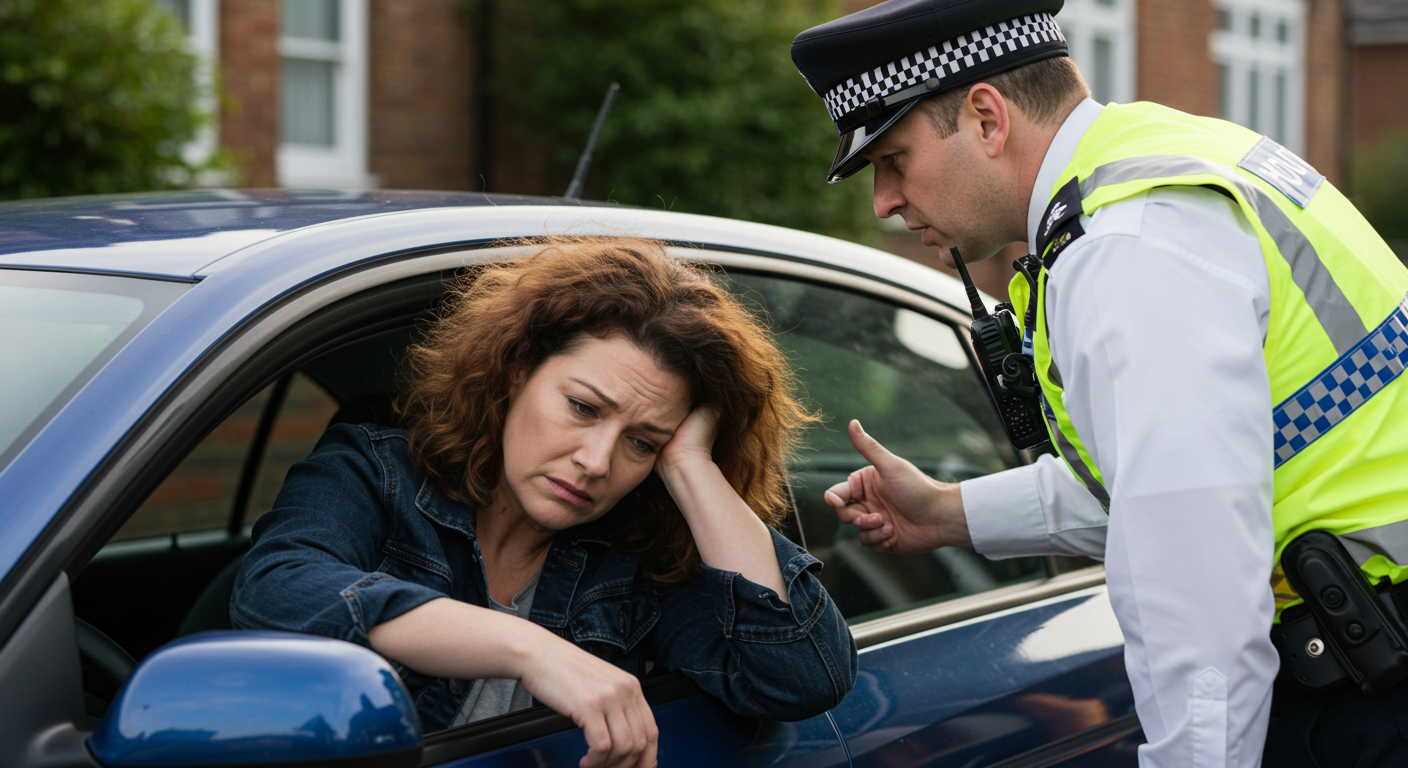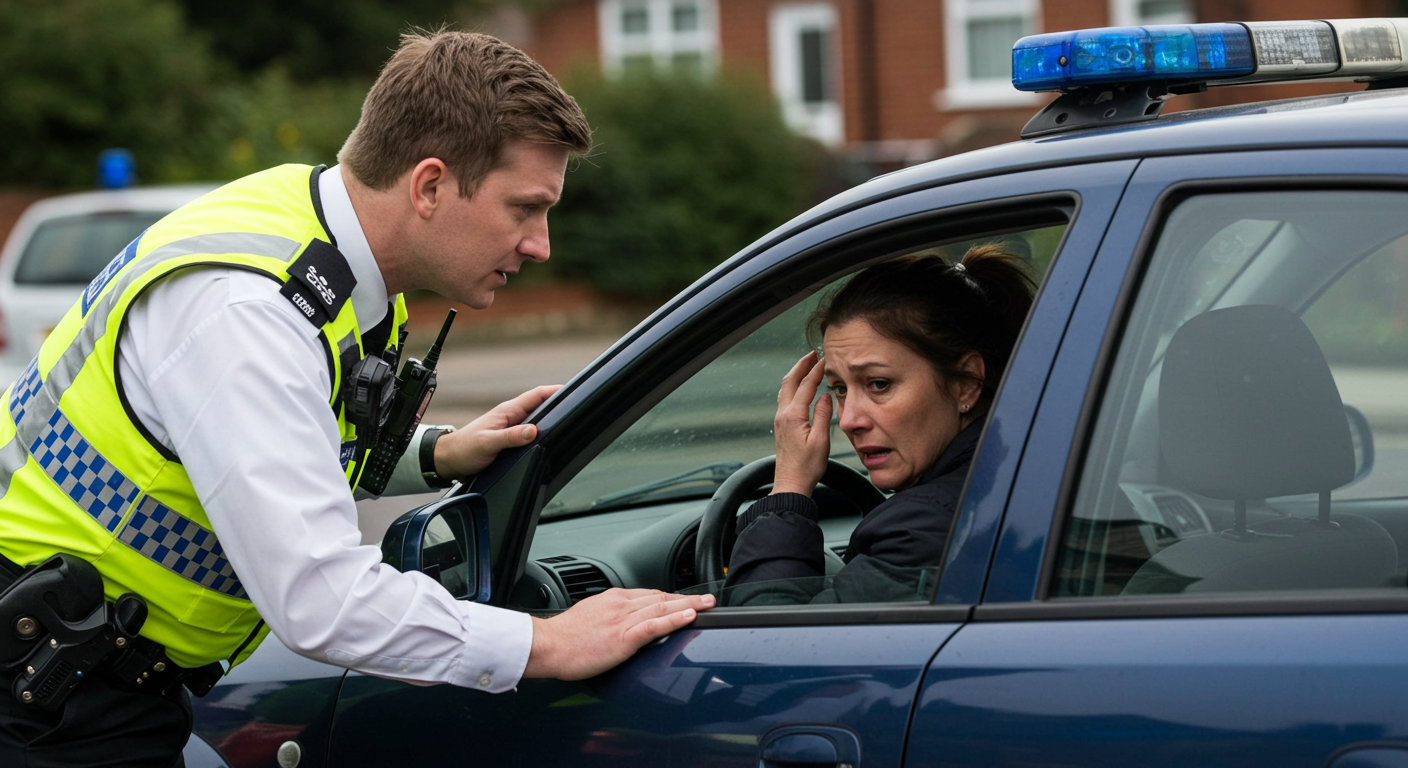Can Police Drug Test You for No Reason in the UK? Your Legal Rights Explained

Can Police Drug Test You for No Reason in the UK? Your Legal Rights Explained
Being stopped by the police and asked to take a drug test can be intimidating, especially if you have done nothing wrong. Many drivers want to know, can police drug test you for no reason, and whether roadside drug testing can be carried out legally without valid grounds — as well as what their rights are if they are asked to provide a sample.
At Makwanas, we understand that police powers in relation to drug driving are not always applied correctly. We regularly defend clients who have been stopped unlawfully or tested without sufficient grounds. Our specialist motoring offence solicitors will ensure that your rights are protected and that any evidence obtained unlawfully is challenged.
If you have been subjected to a roadside drug test and face prosecution, seeking legal advice as early as possible is essential to protect your licence and your future.
Book Your Free Discovery Call Today – Speak to a solicitor and understand your legal options.
Why Choose Our Drug Driving Defence Solicitors?

At Makwanas, we provide expert legal representation in drug driving cases. Here’s why clients trust us:
- Specialist Knowledge – We are highly experienced in defending cases under section 5A of the Road Traffic Act 1988.
- Proven Track Record – We have successfully challenged unlawful stops and roadside testing procedures.
- Tailored Defence Strategies – We review the circumstances of your stop and test to identify legal defences.
- Fixed-Fee Pricing – Clear and transparent fees with no hidden costs.
- Proactive Defence Approach – We act quickly to preserve evidence and challenge the prosecution case.
If you are searching for “can police drug test without reason UK” or “drug driving solicitor near me”, our legal team is ready to help.
Can Police Drug Test You Without a Reason?
No — in the UK, the police must have a reasonable cause to suspect that:
- You are driving, attempting to drive, or in charge of a vehicle while under the influence of drugs, or
- You have committed a moving traffic offence, or
- You have been involved in a road traffic accident.
They cannot lawfully conduct a roadside drug test at random without meeting one of these criteria.
What Counts as Reasonable Suspicion?

Reasonable suspicion may be based on:
- Erratic or unsafe driving behaviour.
- The smell of cannabis or other drugs.
- Your physical appearance — such as dilated pupils or impaired coordination.
- Involvement in an accident, regardless of fault.
What Happens if You Refuse a Roadside Drug Test?
If you refuse to take a drug test without a reasonable excuse (such as a medical condition preventing you from providing a saliva or blood sample), you can be charged with failing to provide a specimen. This carries the same penalties as drug driving:
- Minimum 12-month driving ban
- Unlimited fine
- Up to 6 months imprisonment in serious cases
How We Can Help If You Were Tested Without Reason

We can:
- Challenge the legality of the stop and the grounds for testing.
- Argue that any evidence obtained unlawfully should be excluded.
- Present mitigating circumstances to reduce penalties.
- Defend you if roadside or laboratory test results are unreliable.
Frequently Asked Questions: Can Police Drug Test You for No Reason
Can the police set up random drug testing checkpoints?
Not for drugs — unlike alcohol, there is no power to test randomly without reasonable suspicion.
Do I have to take a drug test if I haven’t taken drugs?
If the police have reasonable grounds, you must comply — refusing without a valid excuse is an offence.
Can I be tested after an accident even if it wasn’t my fault?
Yes — the law allows drug testing of any driver involved in an accident.
What if the test result is wrong?
You can challenge the reliability of both roadside and lab results through a solicitor.
Do the police have to tell me why they are testing me?
Yes — they must explain their reasonable suspicion before testing.
Notice: Informational Content Disclaimer
The content provided on this website, including articles, blog posts, and other informational materials, is intended for general informational purposes only. It is not intended as, and should not be considered, legal advice.
Visitors to this website should be aware that the information presented here is not a substitute for seeking legal advice from a qualified solicitor or legal professional. Each individual's legal situation is unique, and the information provided may not be applicable to specific circumstances.
If you require legal advice or have specific legal questions, we encourage you to contact us directly. Our experienced team of solicitors is here to assist you with your legal needs and provide tailored advice to address your concerns.
Please be advised that any communication through this website, including the use of contact forms or email, does not create a solicitor-client relationship. Confidential or time-sensitive information should not be sent through this website. To establish a solicitor-client relationship and discuss your legal matters in detail, please contact us for a consultation.
We strive to provide accurate and up-to-date information, but we make no representations or warranties regarding the accuracy, completeness, or suitability of the information contained on this website. We shall not be liable for any reliance placed on the information provided herein.
Thank you for visiting our website. We look forward to the opportunity to assist you with your legal needs.




